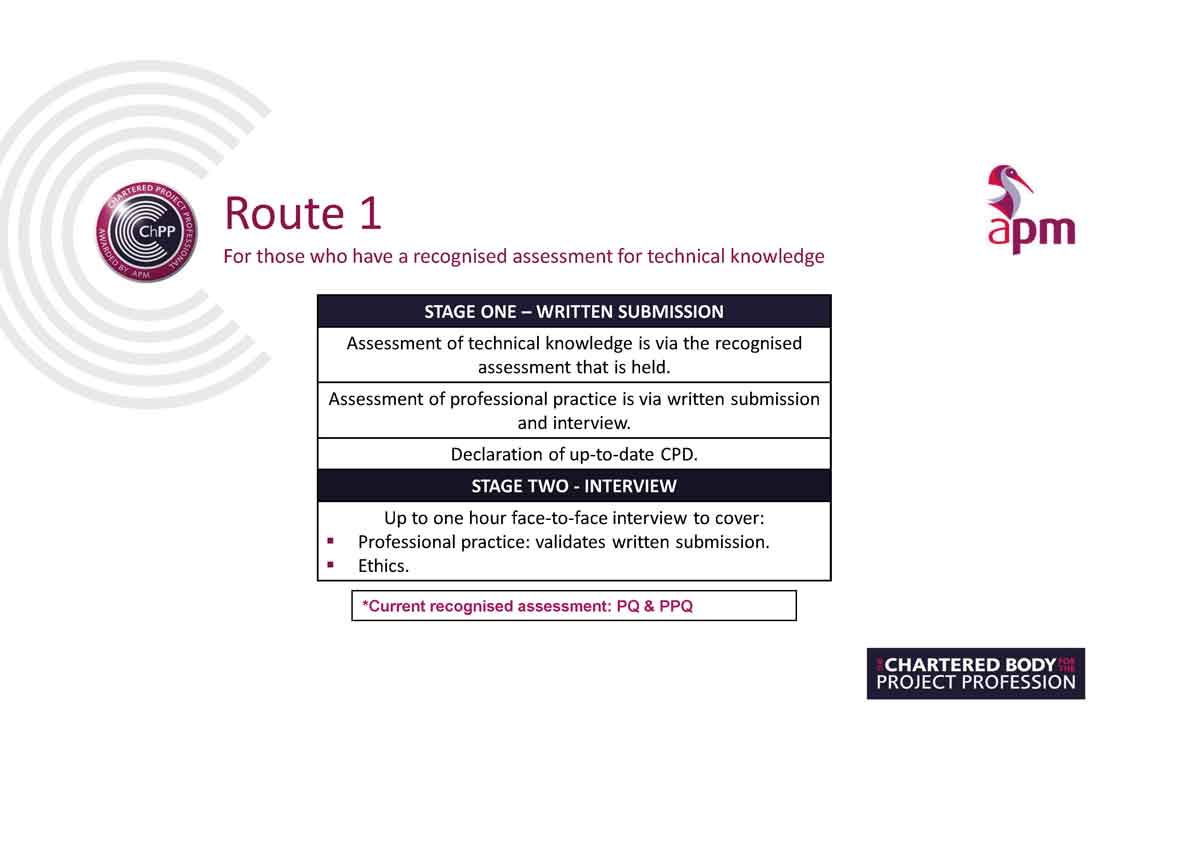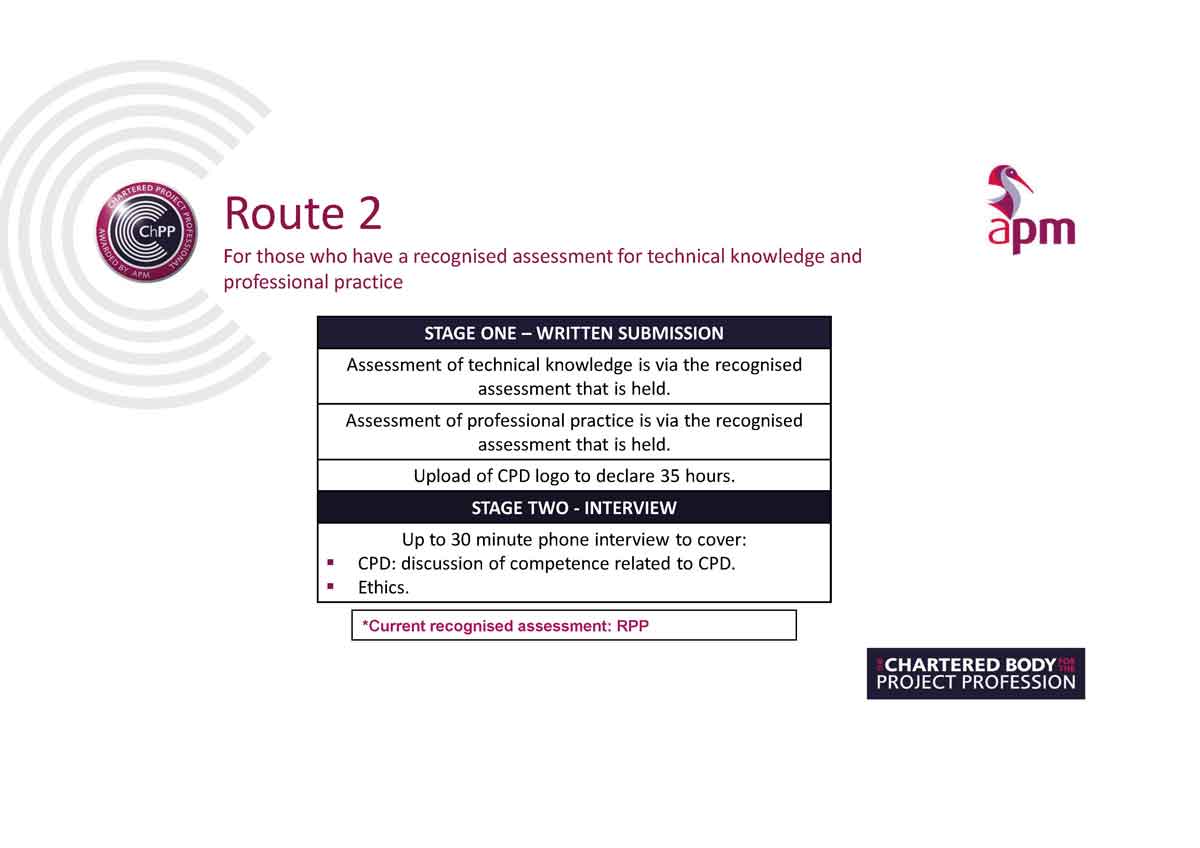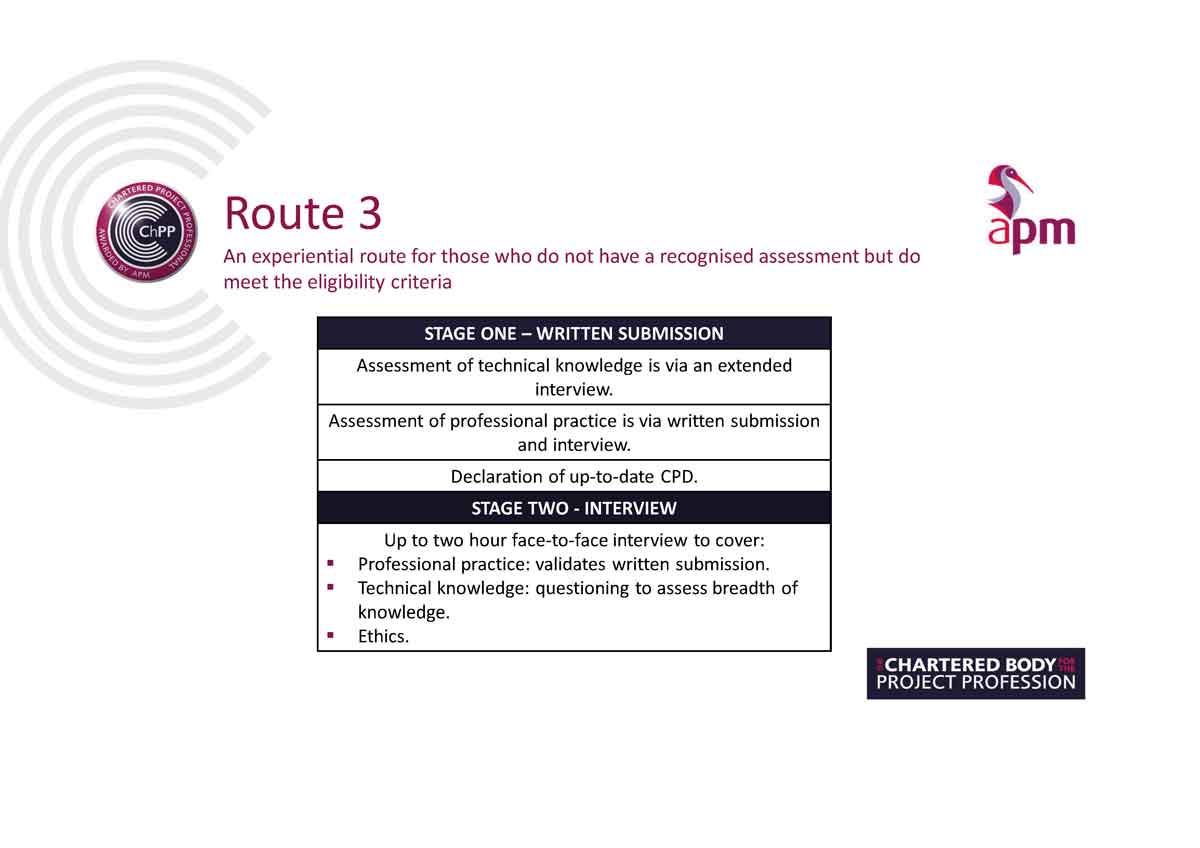Chartered Project Managers are revered experts in the world of project management. They possess the competence and expertise needed to efficiently oversee and execute intricate projects. If you aspire to attain the coveted status of a Chartered Project Professional (ChPP), this comprehensive guide will provide you with invaluable insights into the process and the essential steps involved in this career path.
What is a ChPP Chartered Project Professional?
The title of Chartered Project Professional (ChPP) is a prestigious recognition in the realm of project management. Introduced in 2017 by the Association for Project Management (APM), the ChPP standard signifies technical knowledge, ethical conduct, and professional practice, with certified individuals listed on the Register of Chartered Project Professionals.
What does a ChPP do?
Understanding the role of a Chartered Project Professional is essential before embarking on the certification journey. These professionals are responsible for the full project lifecycle, from initiation to closure, adhering to defined budgets, schedules, and quality standards. Their role encompasses efficient resource management, stakeholder satisfaction, and risk mitigation. Key skills include leadership, communication, problem-solving, and strategic thinking.
Chartered Project Professionals are more than task managers; they are visionary leaders who ensure project progression, resource optimisation, and effective communication. They excel at identifying and managing risks, fostering adaptability in the face of challenges, and promoting collaboration within project teams.
What is ChPP status?
ChPP status is a hallmark of credibility and proficiency in project management. It not only validates your skills and knowledge but also elevates your professional standing, setting you apart in the competitive job market. This status demonstrates your commitment to continuous improvement and professional development in the field of project management, providing access to a vast network of professionals for collaboration and knowledge sharing.
The pathway to becoming a Chartered Project Professional (ChPP)
It's important to note that you don't need to be a member of APM to apply. Existing APM members are already part of a chartered body, but to attain individual chartered status, they must apply for the Chartered Project Professional (ChPP) standard. To support those aspiring to achieve ChPP, a range of support services is now available for booking, accessible to all individuals. However, members of APM can enjoy a discounted rate for these services.
ChPP is open to individuals who meet these qualifications:
- A proven track record in successfully delivering projects, programmes, portfolios, or a key control/enabling function.
- Current knowledge of best practices and methodologies in project management.
- Active involvement in the project management profession.
The APM offers three distinct routes to becoming a Chartered Project Professional, catering to professionals at different stages of their careers. Whether you possess recognised qualifications, experience, or meet eligibility criteria, there's a suitable ChPP route for you.
Route 1: Recognised Qualification
This pathway to becoming a Chartered Project Professional (ChPP) is tailored for project management professionals who possess a recognised assessment of their technical knowledge. It's an ideal choice for those who have already demonstrated their expertise in the field and are ready to embark on the journey to obtain chartered status.

A. Recognised assessment for technical knowledge
To enter route 1 to ChPP, candidates must have a recognised assessment that validates their technical proficiency in project management. This assessment could take the form of specific exams, tests, or evaluations that have been acknowledged and accepted by the Association for Project Management (APM). Some recognised assessments that APM acknowledges include:
- APM Project Professional Qualification
- APM Practitioner Qualification (PQ)
B. Provide a written submission and interview
To accomplish this, you must follow a three-step process to provide supporting evidence. Additionally, you will be required to confirm your ongoing engagement in Continuing Professional Development (CPD) and furnish the details of your proposers.
- Step 1
- Step 2
- Step 3
The first step involves choosing which competencies you intend to provide evidence for. A total of 12 competencies need to be fulfilled, including seven mandatory ones and five elective choices. These competencies are at the core of what defines a Chartered Project Professional's capabilities.
Next, candidates are required to offer concise descriptions for a maximum of four projects, programs, or portfolios that they intend to use as illustrative examples. Each project overview should be brief and not exceed 500 words, providing a snapshot of the work undertaken.
In the final step, candidates compose descriptions of up to 250 words for each competency, ensuring to reference the pertinent project overview as needed. These descriptions should succinctly showcase how the candidate's actions and decisions during the project align with the competency in question.
ChPP Assessment
Once the application is submitted, it undergoes a rigorous assessment process. If it meets the criteria and demonstrates the required competencies and ethical conduct, candidates receive an invitation for an interview. This interview, lasting up to one hour, is a critical component of the assessment and covers several topics, including:
- Professional Practice: The interview aims to validate the candidate's written submission by delving deeper into their professional experiences and practices.
- Ethical behaviour and conduct are essential for a Chartered Project Professional. The interview assesses the candidate's commitment to ethical standards and principles.
APM ChPP cost for application
The total cost for the ChPP application under this route is £967.20*, divided into two parts. The annual registration fee amounts to £86 + VAT, with the initial payment scheduled for 12 months following the ChPP award. If the candidate is an APM member, the fee will be synchronised with their membership renewal date. (Costs at September 2023)
Route 2: Recognised qualification and experience
The second pathway to achieving Chartered Project Professional (ChPP) status is specifically designed for project management professionals who not only possess recognised technical expertise but also have a proven track record of professional practice. This route acknowledges both the knowledge and hands-on experience that individuals bring to the table.

Unlike Route 1, where candidates need to provide a detailed written submission, route 2 to ChPP skips that step. With a recognised qualification and relevant experience, the emphasis here is on the practical aspect of project management.
A. Upload your CPD
A key component of this route is the requirement to provide evidence of Continuing Professional Development (CPD). Candidates must provide documentation that illustrates their commitment to ongoing learning and development in the field of project management. This typically includes evidence of at least 35 hours of CPD.
ChPP Assessment
Once the application is submitted, it undergoes a thorough assessment process. If it meets the criteria and demonstrates the required competencies, ethical conduct, and up-to-date knowledge, candidates receive an invitation for an interview. This interview, lasting a maximum of 30 minutes, focuses on several critical areas:
- CPD: The interview assesses the candidate's commitment to Continuing Professional Development (CPD) and looks into the activities they have undertaken for their professional development.
- Ethics: Ethical behaviour and adherence to ethical standards are crucial for a Chartered Project Professional. The interview evaluates the candidate's ethical practices and principles.
- Currency of mandatory competences: To maintain chartered status, it's essential for candidates to stay current in their competencies. The interview assesses their ability to apply their knowledge effectively in today's project management landscape.
APM ChPP cost for application
The total cost for the ChPP application under this route is £322.80*, divided into two parts. The annual registration fee amounts to £86 + VAT, and the initial payment is expected 12 months after obtaining the ChPP designation. For APM members, the fee will coincide with their membership renewal date. (Costs at September 2023)
Route 3: No recognised qualification but do meet the eligibility criteria
The third pathway to becoming a Chartered Project Professional (ChPP) is also known as the experiential route. This route is tailored for professionals in the project management field who may not hold recognised qualifications but meet specific eligibility criteria based on their experience and expertise. It offers an opportunity for individuals to demonstrate their capabilities, competence, and commitment to ethical standards in project management.

3 steps to providing evidence in support of your application:
Route 3 to ChPP is particularly suitable for project management professionals who have substantial experience in the field but may not have pursued or obtained recognised qualifications or certifications. It acknowledges the value of hands-on experience and the practical skills developed through years of managing projects.
- Step 1
- Step 2
- Step 3
Providing Evidence and Project Examples: Candidates opting for this route are required to provide comprehensive evidence of their professional journey. This includes descriptions of their experience, achievements, and involvement in various projects, programs, or portfolios. They must also offer details about their relevant competences and skills.
Description of Project Examples: As part of their application, candidates are expected to provide descriptions for up to four specific projects, programs, or portfolios. These descriptions should offer insights into the nature, scope, and outcomes of these projects, highlighting the candidate's role and contributions. Each project overview should not exceed 500 words.
Competence Descriptions: To further demonstrate their capabilities, candidates are asked to compose descriptions of each competence they claim to possess. These descriptions, typically limited to 250 words each, should illustrate how they have applied these competences in their professional practice.
ChPP Assessment
Once the application is submitted, it undergoes a thorough evaluation process. This assessment aims to determine whether the candidate meets the eligibility criteria set by the Association for Project Management (APM) and possesses the required competences.
Candidates progressing through this route receive an invitation for an interview. This interview, which can last up to two hours, covers several key areas:
- Professional Practice: The interview assesses the candidate's professional practice and the practical application of their project management skills in real-world scenarios. It evaluates their experience, approach to managing projects, and problem-solving abilities.
- Technical Knowledge: Candidates are expected to demonstrate a broad understanding of project management concepts, methodologies, and best practices. The interview may include technical questions to assess the depth of their knowledge.
- Ethics: Ethical behaviour and adherence to ethical standards are critical in the project management profession. The interview explores the candidate's ethical principles and their commitment to maintaining high ethical standards.
APM ChPP cost for application
The total cost for the ChPP application under this route is £1,432.80*, divided into two stages of assessment. The annual registration fee amounts to £86 + VAT, and the initial payment is due 12 months after receiving the ChPP designation. For APM members, the fee will align with their membership renewal date. (Costs at September 2023)
Salaries for Chartered Project Professionals
As of September 2023, Chartered Project Professionals (ChPPs) in the United Kingdom are enjoying competitive compensation packages that reflect their expertise and the value they bring to organisations. The typical salary for ChPPs can vary based on factors such as experience, industry, location, and the size and complexity of the projects they manage. Let's delve deeper into the factors that influence the salaries of Chartered Project Professionals:
Project Management Experience
Experience is a significant determinant of a ChPP's salary. Professionals with several years of experience in project management, especially those who have successfully managed complex projects, tend to command higher salaries. Their extensive track record demonstrates their ability to deliver results and minimise project risks, making them highly valuable to employers.
Industry
Experience is a significant determinant of a ChPP's salary. Professionals with several years of experience in project management, especially those who have successfully managed complex projects, tend to command higher salaries. Their extensive track record demonstrates their ability to deliver results and minimise project risks, making them highly valuable to employers.
Location
Geographic location plays a crucial role in salary discrepancies for ChPPs. Salaries tend to be higher in major cities and regions with a high cost of living. London, for example, typically offers higher salaries compared to other parts of the UK. Professionals should consider the cost of living when evaluating salary offers in different locations.
Project Complexity
The size and complexity of the projects managed by ChPPs can impact their compensation. Managing large-scale, intricate projects that involve significant budgets and numerous stakeholders often leads to higher salaries. Employers recognise the skill and expertise required to handle such projects successfully.
Company Size
The size of the employing organisation can influence a ChPP's salary. Large corporations and multinational companies may offer more competitive compensation packages compared to smaller firms. These organisations often handle substantial projects that require experienced project management professionals.
Professional Reputation
ChPPs who have established a strong professional reputation within the industry may command higher salaries. A track record of successful project deliveries, industry recognition, and endorsements can elevate a ChPP's market value.
In addition to base salaries, ChPPs often receive benefits such as performance bonuses, health insurance, retirement plans, and other perks. These benefits can significantly enhance the overall compensation package.
It's essential for Chartered Project Professionals to assess their individual circumstances, qualifications, and the specific demands of their roles when negotiating salaries. While the average national salary for ChPPs in the UK is approximately £51,766 according to Glassdoor, actual salaries can vary widely based on the factors mentioned above. As ChPPs gain experience, build their professional networks, and demonstrate their project management expertise, they are well-positioned to secure competitive salaries and advance their careers in this dynamic field.
Will I receive ChPP post nominals?
ChPP post nominal example: 'Elon Musk ChPP'
After achieving the coveted Chartered Project Professional (ChPP) status, you'll have the honour of proudly displaying the 'ChPP' post-nominals alongside your name and professional profiles, signifying your dedication and stellar accomplishments in the field. You'll stand out as a trusted and accomplished project management professional.
Conclusion
Becoming a Chartered Project Professional isn't just a rewarding journey; it's your ticket to the big leagues of project management. By mastering the role, obtaining accredited certifications, and consistently fine-tuning your skills, you'll establish yourself as an expert in the field. Embrace the myriad opportunities for growth and advancement in this dynamic domain, and plot your course toward a successful career as a Chartered Project Professional!
